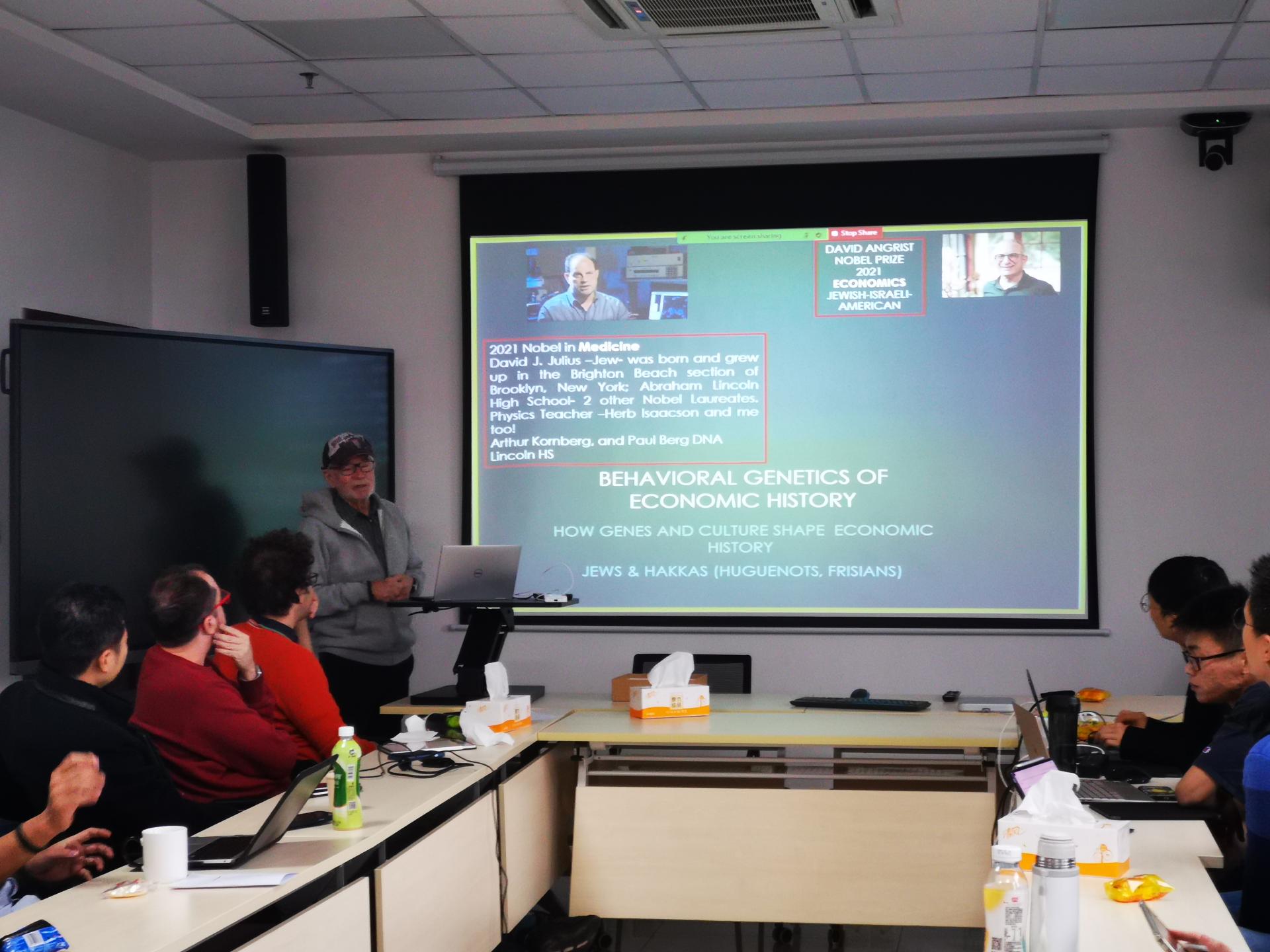Title: Behavioural Generics of Economic History
Speaker: Richard Ebstein
Time: Nov 30, 2021 (Tuesday) 3:45pm - 4:30pm
Address: Room 311 HongYuan Building
Abstract:
Little or no emphasis has focused on ethnogenetic contributions to shaping national and regional economic histories. This mini-series of lectures aims to correct this oversight and focus attention on the extra value accorded by incorporating a behavioral genetic perspective towards a deeper understanding of the socio-demographic context underpinning salient economic events especially the rise of capitalism and market economies in Europe and more recently the Four Asian Tigers as well as China’s economic miracle evidenced by the world's fastest-growing major economy, with growth rates averaging 10% over 30 years. We first discuss the Jewish people inter alia as an example of this ethnogenetic perspective vis à-vis economic history. Although the Jews are a minority recognized for their cognitive, entrepreneurial skills they are not unique. Other groups, whose culture along with a peculiar genetic history provided them with finely-honed talents that positioned them as a recognizable in-group to contribute to the advancement of the arts, science and economic development of the countries to where they emigrated. These groups that share similar characteristics with the Jews are discussed in this mini-lecture series and include the Catalonians (Spain), Frisians (Holland, N. Germany), Huguenots (France) and the Hakkas (China). In this miniseries of lectures, we discuss the ethnogenetic story of the Jews and other groups, especially the Hakkas (a Han Chinese sub-group), and economic history. Because the Hakkas have sometimes faced persecution and had to relocate often, some historians have dubbed them "China’s Jews." And like Jews, they’re regarded as frugal hard workers and excellent students. We evaluate the hypothesis, arising from considerable evidence, that the remarkable achievement of the Jews, Hakkas and other such groups may be traceable to gene-culture co-evolution (G x C) that endowed such groups with on average greater cognitive skills, especially their capacity to assimilate suggestions, recommendations, persuasion and information from surrounding cultures that explains their often leading role, in economic development and entrepreneurship.

